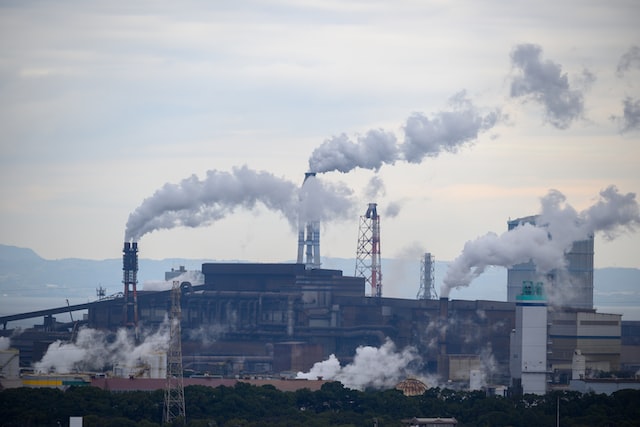
Industrial processes are responsible for a significant portion of global greenhouse gas emissions. These emissions are primarily generated by the production and use of fossil fuels, which are widely used to power heavy machinery, factories, and other industrial processes.
The processes that produce the most emissions can vary depending on the industry, but some of the biggest culprits include:
- Power generation: The burning of fossil fuels to produce electricity is responsible for a significant amount of global greenhouse gas emissions. Coal-fired power plants are particularly notorious for their high emissions of carbon dioxide and other harmful pollutants.
- Manufacturing: The production of steel, cement, and other materials is a major contributor to greenhouse gas emissions. The high temperatures required to melt and process these materials often rely on fossil fuels, which release large amounts of carbon dioxide and other greenhouse gases.
- Transportation: The transportation sector is responsible for a large portion of global emissions, with the majority coming from the use of fossil fuels in cars, trucks, and other vehicles.
- Agriculture: The agricultural industry is responsible for a significant amount of greenhouse gas emissions, particularly from the production of livestock, which generates methane emissions.
- Chemical production: The production of chemicals and other materials often involves the use of fossil fuels and other energy-intensive processes, leading to high emissions of greenhouse gases.
Reducing emissions from industrial processes will require significant changes in the way we produce and consume energy and materials. However, with the right policies and technologies in place, it is possible to create a more sustainable and low-carbon industrial sector.